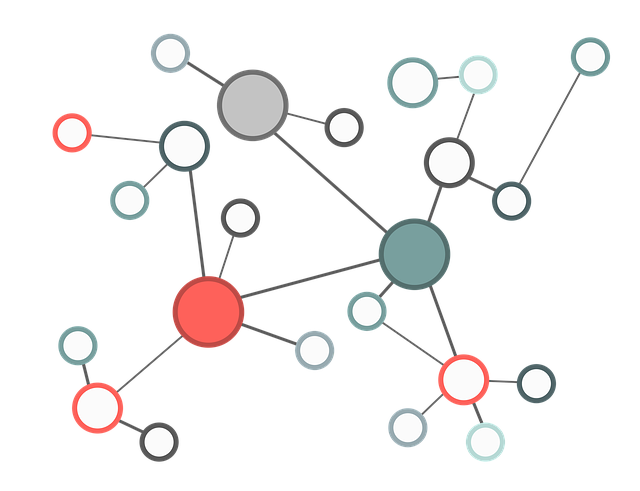How Narcissistic Parenting Shaped My Relationship with Success

How Narcissistic Parenting Programmed Me to Fear Success: Breaking the Cycle of Self-Sabotage
Growing up under the control of a narcissistic father, success always felt out of reach – like a prize I could see but never grasp. For decades, I chased it relentlessly. In my 20s and 30s, I tried everything: starting businesses, building relationships, chasing dreams. But every time I got close to a breakthrough, an invisible force seemed to pull me backward.
I was determined. I kept trying, over and over. But no matter what I did, self-sabotage crept in. I’d panic, procrastinate, or walk away just as things started working. A close friend once asked, “Why do you keep doing this to yourself?” I sighed, “I know I’m sabotaging my life, I just don’t know why.”
Depression and Self-Sabotage: Trapped in a Cycle
Self-sabotage left me stuck in a loop: I’d set goals, then unknowingly undermine them. Over time, the constant failures dragged me into depression. The link between depression and self-sabotage is vicious—after years of trying and failing, you stop believing change is possible. Why keep fighting when every effort ends the same way?

Trauma and Self-Sabotage: The Hidden Connection
What I didn’t realize then was how deeply trauma fueled this cycle. Self-sabotage wasn’t a choice—it was my brain’s automatic response to old wounds. Even when I consciously aimed for success, my unconscious mind would hit the brakes, whispering: “This feels dangerous.”
For example:
- I’d land a job opportunity → Anxiety spiked → I’d procrastinate until I lost it.
- I’d meet someone great → Fear surged → I’d pick fights until they left.
This wasn’t laziness or bad luck. It was trauma and self-sabotage working together to “protect” me from perceived threats – threats my childhood taught me to expect.
Why Was This Happening to Me?
The answer wasn’t in another self-help book or motivational seminar. No amount of external advice could fix this. I had to dig inward. For years, I’d blamed myself for “lacking discipline” or “not trying hard enough.” But the truth was buried deeper: my self-sabotage wasn’t a flaw—it was a shield.

The Breakthrough: Connecting the Dots
When I began examining my past, I noticed a pattern:
- Every time I neared a goal, anxiety would surge.
- My chest would tighten, my thoughts would race, and fear screamed: “Stop! This feels dangerous!”
- Sabotage became my escape hatch—a way to silence the discomfort.
Short-term, it worked. Walking away from opportunities brought instant relief. But long-term, it trapped me in a cycle of shame: “Why can’t I just get it right?”
The Turning Point: Asking the Right Question
One day, I paused and asked myself:
“What is self-sabotage protecting me from?”
The answer hit me like a lightning bolt:
“It’s keeping me safe.”
Safety? From what?
As a child, achievement and happiness were dangerous. If I excelled or laughed too loudly, my father would retaliate with criticism, mockery, or rage. My brain learned to equate success with punishment—a lesson so deeply ingrained, it became automatic.
Rewiring Survival Mode
Understanding this changed everything. My self-sabotage wasn’t random—it was my inner child’s desperate attempt to avoid reliving old wounds. Every time I panicked and quit, I wasn’t failing. I was surviving.
But survival mode isn’t living. To break free, I had to prove to myself:
“You’re safe now. You can achieve and still be okay.”
The Hidden Logic of Self-Sabotage after Narcissistic Abuse
You might wonder: How could avoiding success possibly keep you safe? The answer lies in a lesson my childhood brain learned too well: achievement and happiness made me a target.
Growing up, joy or progress were like red flags to my narcissistic father. If I laughed too loudly or shared good news, he’d retaliate with cutting remarks, mockery, or gaslighting. For example:
- If I aced a test: “You think you’re smarter than me now?”
- If I seemed happy: He’d invent a crisis or criticize my appearance.
My achievements threatened his fragile ego, so he’d tear them down to regain control. Over time, my brain wired two survival rules:
- Success = Danger
- Happiness = Pain
By adulthood, this conditioning was automatic. Without realizing it, I’d self-sabotage to avoid “triggering” the criticism I’d come to expect. It wasn’t logical—it was trauma logic.

From Confusion to Clarity
For decades, I couldn’t understand why I kept derailing my own life. Then, one day, I connected the dots:
- The anxiety I felt when succeeding wasn’t fear of failure—it was fear of punishment.
- The urge to sabotage wasn’t laziness—it was my inner child screaming, “Stay small! Stay safe!”
This wasn’t a choice. It was my nervous system replaying an old script: “If you don’t achieve, you won’t get hurt.”
Why This Discovery Matters
Uncovering this pattern didn’t “fix” me overnight. But it gave me something priceless: awareness. For the first time, I could see:
- My self-sabotage wasn’t random—it was a coded message from my past.
- My father’s voice in my head wasn’t truth—it was projection.
Now, when anxiety whispers “Don’t stand out,” I recognize it for what it is: a relic of survival, not a prophecy.

Final Words on Deep Childhood Patterns
I share this not as a story of victimhood, but as proof that even the deepest patterns can be seen and named. You don’t have to stay trapped in your past, but first, you must understand how it shaped you.
The greatest rebellion against narcissistic abuse? Seeing yourself clearly—and realizing the “danger” was never yours to carry.